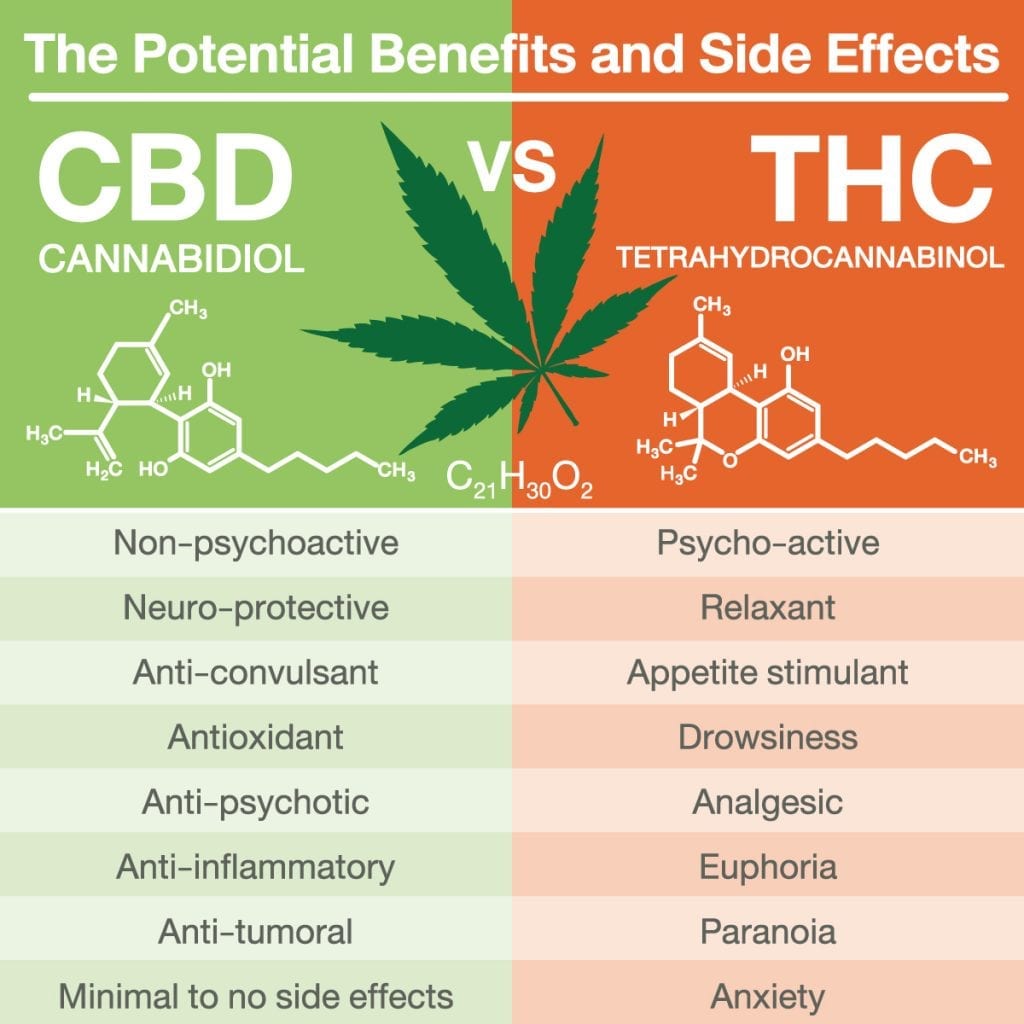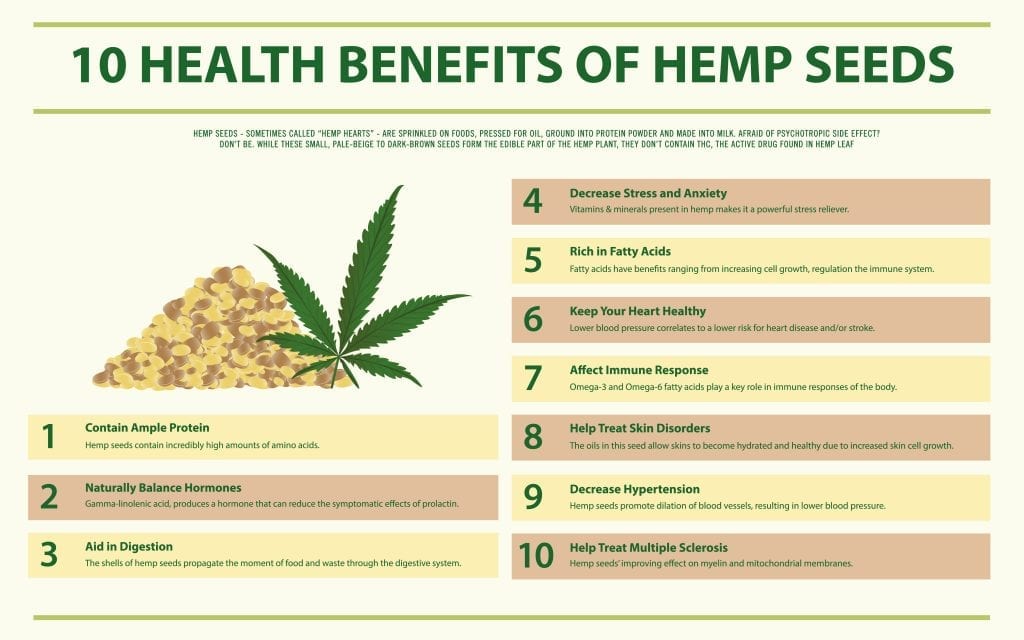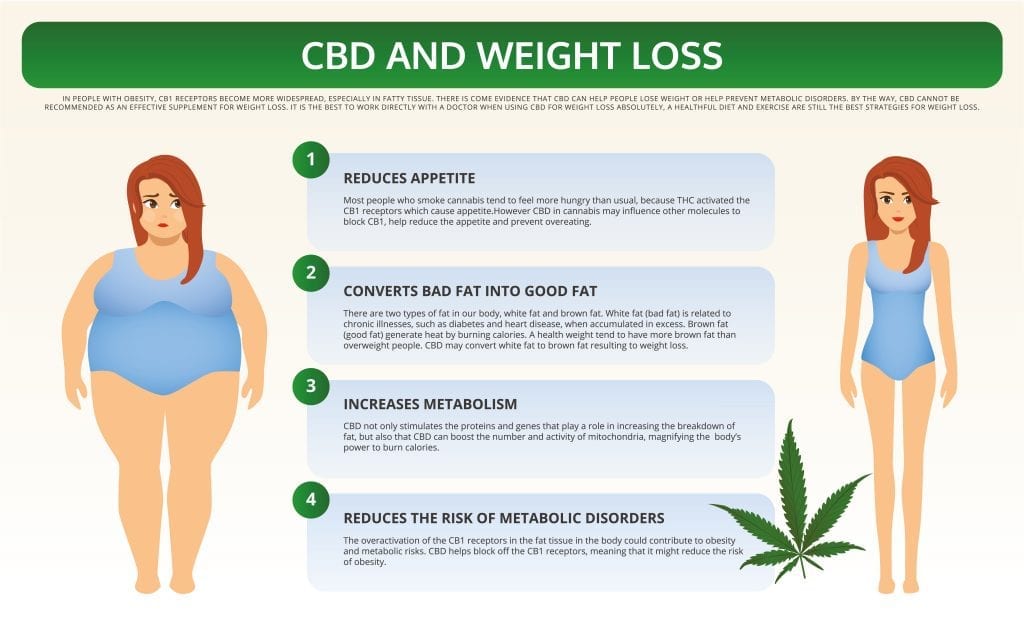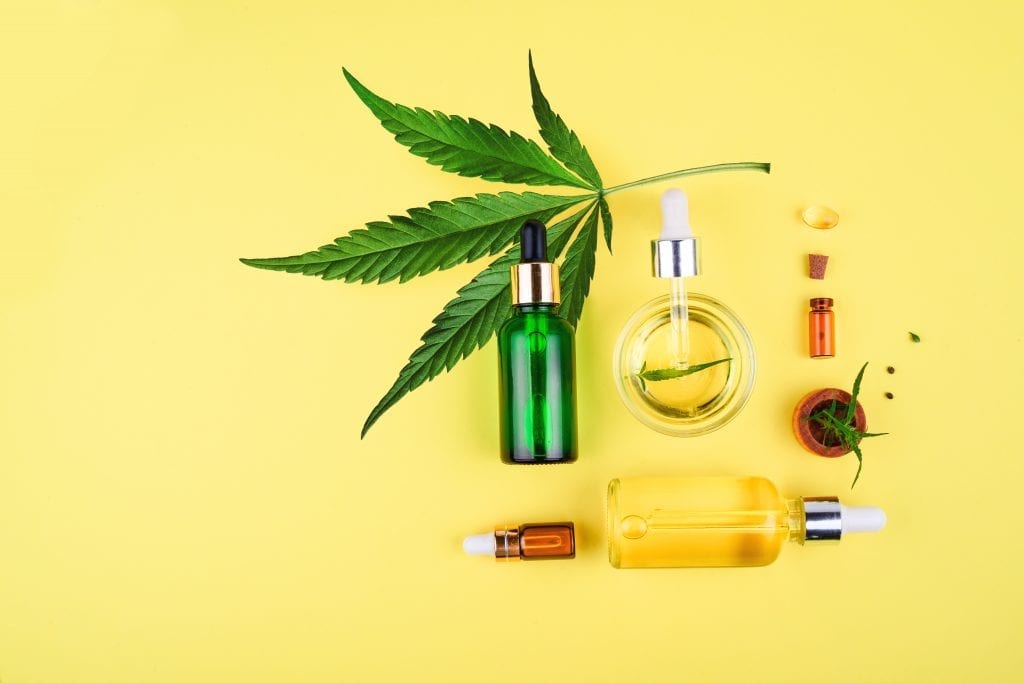Did you know that the United States is legalizing marijuana? Since several states are legalizing it because of its various benefits, CBD, an active ingredient in a cannabis plant, has become popular among consumers.
If you don’t already know, CBD, which stands for cannabidiol oil, is a chemical naturally obtained from a cannabis Sativa plant. It is great for relieving pain and treating mental disorders like depression and anxiety.
According to the 2019 study published in the La Permanente Journal, it is one of the 80 active cannabinoids. There are various forms in which CBD products are available such as CBD gummies, oils, capsules, and sprays.
In this article, we will discuss everything you need to know about CBD effects. Let’s start with a quick comparison between marijuana and CBD.
Are marijuana and CBD effects similar?
We came across several common misconceptions about CBD. First things first, even though CBD oil is derived from a marijuana plant, it does not make you high or trigger psychological effects like hallucinations and paranoia.
CBD and THC are both chemical compounds present in cannabis. Marijuana has a high THC concentration, in contrast to the hemp plant, which has THC below 0.3%. Therefore, a hemp plant is commonly used for extracting CBD oil.
The difference between CBD and THC

CBD is non-intoxicating, which means it’s not a psychoactive compound that will get you stoned. Its infamous cousin, THC, is a chemical that can make you high.
CBD somehow manipulates our brain, but it is not responsible for activating CB1 receptors. Therefore, it does not intoxicate our body.
If you are taking higher concentrations or more than the recommended amount of CBD oil, it may create an uplifting sensation. But it is not similar to being stoned.
The THC attach themselves to the cannabinoid receptors present in our brain and produce psychoactive effects in people who consume marijuana.
Moreover, CBD oil, an essential component of cannabis, is obtained from both marijuana and hemp plants. Therefore, using it cannot make you high at all.
As per the report of the World Health Organization, there were no CBD side effects and public health problems after utilizing pure CBD.
Does CBD work?
Now, this is a million-dollar question. According to Dr. Jaliman, it is rich in amino acids and provides nourishment to the skin, nails, and hair. It is also a powerful antioxidant that can protect your skin from free radicals. Moreover, it contains fatty acids that will keep your skin healthy.
Cannabidiol oil interacts with your body’s endocannabinoid network and regulates several functions such as metabolism, digestion, memory, mood, motor control, memory, sleep, fertility, immune function, pain, and perception.
As you can see, It effectively works on our body. Now the question is, how does it affect our body? And what are the CBD effects?
Potential CBD oil effects
Several studies have proven that CBD provides relief from various symptoms and ailments. It is considered to be safe for human consumption because it does not contain any addictive properties.
Moreover, CBD oil interacts with your body’s large messaging system that plays a vital role in regulating several physiological functions.
A study documented in the International Journal of Molecular Sciences (2018) shows CBD effects on physiological functions.
Let’s have a close look at the benefits of CBD oils.

Relief from chronic pain and inflammation
Managing pain by affecting your brain receptors is one of the significant CBD oil effects. It helps in decreasing a few kinds of chronic pain. For instance, people with fibromyalgia reported positive results after using CBD oil. It gave them relief and reduced pain.
Moreover, other studies have proven that cannabidiol oil inhibits neurotic pain and inflammation.
Nabiximols is a drug that has a combination of CBD and THC. Researchers presume that the presence of CBD oil in this drug contributes to its anti-inflammatory properties to manage the pain.
This is why Canada and the United Kingdom have approved this multiple sclerosis pain treating drug.
Cannabidiol clinical trials are essential to determine whether we should use it for managing pains or not. However, various preclinical studies are studying the role of marijuana in relieving multiple symptoms, such as:
- Chronic pain
- Muscle pain
- Multiple sclerosis pain
- Arthritis
Fights off bacteria
Cannabidiol oil can fight certain types of drug-resistant bacteria. According to a 2020 study, it was observed that CBD is bactericidal and counteracts against a few bacterial strains.
However, more research is needed to better understand the link between cannabinoid’s battle against infections.
Prevents neurodegenerative disorders
The study cited in the Journal of Alzheimer’s Disease (2014) showed the CBD effects on patients with Alzheimer’s. It slowed down the memory deficit and social recognition among people in the early stages of this disease.
Hence, it means that this oil can help in improving people’s senses to recognize familiar things, and it is also useful in reducing the intense symptoms of Alzheimer’s.
Moreover, researchers are still finding the link of CBD oil effects on the CB1 receptor. Any problems in this receptor can cause the brain and nerves to deteriorate. They are still further studying to treat Alzheimer, Parkinson, and Stroke.
Treats skin conditions
Several studies in the past years prove that CBD oil can help you have clear, healthy skin. It helps in treating skin issues like acne and eczema by reducing inflammation.
The published human study in the JCI (Journal of Clinical Investigation) states that the oil helps regulate the production of excess sebum by preventing the hyperactivity in the sebaceous glands. Thus, it works as an effective antioxidant and prevents acne.
Controls seizures
Several studies show that CBD contains anti-seizure properties that can treat epilepsy in children effectively.
Recent research has explored treating the catastrophic seizures caused by epilepsy syndromes such as Lennox-Gastaut Syndrome (LGS) and Dravet Syndrome with CBD oil. Both of these syndromes are rare genetic disorders that don’t respond to anti-seizure medications.
Moreover, the Food and Drug Administration (FDA) approved an oral solution of CBD called Epidiolex in 2018. It is the first FDA approved drug because it contains a pure form of cannabis extract.
This drug helps treat rare epilepsy syndromes, and in some cases, it can completely cure the seizures as well.
Overcome anxiety
Cannabidiol oil can help you manage your anxiety. According to the 2013 research published in Psychopharmacology, the oil can change how your brain receptors respond to serotonin, which is a chemical associated with mental health.
Moreover, another study cited in Neuropsychopharmacology in 2011 showed that when a 600 mg dose of CBD oil was given to people before a public-speaking event, it significantly helped them with social anxiety.
Alleviates heart disease
Heart disease is a significant cause of death in the US. Elevated blood pressure can lead to hypertension as it affects the working of a heart’s muscles and arteries. Most of the time, hypertension can increase the risk of kidney disease and stroke.
Therefore, using this magical elixir can also reduce the risk of several heart diseases. It can regulate the fluctuations in the blood pressure caused by stress, according to the study published in JCI Insight (2017).
CBD side effects
Cannabidiol oil does not have significant risks, but the severity can vary from person to person. The CBD side effects that most people commonly experience are:
- Low blood pressure
- Dizziness
- Loss of appetite
- Tiredness
- Dry mouth
- Depression
- Alteration in liver enzymes
- Hallucinations
These CBD side effects occurred in patients when they raised their dosage in the first weeks. The symptoms disappeared when they lowered and stabilized it.
Warnings of CBD oil
Although WHO and various health organizations have confirmed CBD safe, the number of experiments is not enough to identify if CBD is hazardous for specific people.
Since safety must be your primary concern, here is a long list of conditions that you must give special consideration before ingesting CBD.
Takin prescription drugs
Your body is capable of processing prescription drugs in a variety of ways. Some pharmaceutical medications, after treated by your body, become less effective while other drugs become effective when processed.
If you take drugs with CBD, it can be harmful to your health as it increases or decreases the level of medications in the bloodstream.
Therefore, if you are currently on some medications, it is better to take suggestions from a medical health professional before including CBD products in your routine.
Decreased blood pressure
One of the benefits discussed above is that CBD is responsible for lowering blood pressure. According to several studies, it is a useful oil that reduces blood pressure in stressful events.
Therefore, ingesting it can temporarily reduce your resting blood pressure. Hence, it’s a good idea to avoid taking CBD products if you continuously suffer from hypotension.
Suffering from Parkinson’s disease
Several researchers suggested that when people with Parkinson’s Disease consumed a high dose of CBD oil, their tremors and muscle movement became worse.
Liver complications
If you have a liver problem, you should be cautious before taking CBD. In a clinical trial, when children were given Epidiolex (a drug for seizures that contains CBD), their liver enzymes, i.e., AST and ALT, raised significantly.
More research is needed whether this oil directly affects the liver or not. It is believed that the elevation of the enzymes can be due to the interaction of cannabidiol oil with medication, and it may raise the level of drugs in the bloodstream.
If you currently have a liver problem or take prescription drugs, it is essential to monitor liver enzymes while using CBD products.
Weak immune system
Cannabidiol oil is also known as an immunomodulator as it calms down hyperactivity. However, several pieces of evidence claim that it can be harmful to people, especially those whose immune system is already weak, such as HIV patients.
Replace medications with CBD
Several enthusiasts love this oil. They have stopped using medications and are relying entirely on CBD. But to be honest, that’s a wrong practice.
Do not replace your prescribed or current drugs with CBD oil unless approved by a health professional.
Thinking to conceive
We produce natural cannabinoids that our bodies use as messengers. The essential use of these messengers is to help women conceive.
Several studies report that people who use cannabis regularly have low fertility rates because of additional cannabinoids. Therefore, you should discuss your cannabis product usage with your physician if you have a problem in conceiving.
Furthermore, there is not enough supporting evidence, and few studies suggest that it is because of THC rather than CBD.
Pregnant or breastfeeding
It is unsafe to use CBD oil if you are pregnant or currently breastfeeding. Cannabidiol oil has active molecules that can easily pass from the mother’s bloodstream to her baby’s body through the placenta or breast milk.
Moreover, CBD products might be contaminated with various ingredients that can harm a growing fetus and an infant.
It is better to stay safe and avoid using it. If you are experiencing anxiety or other medical conditions during breastfeeding or in pregnancy, discuss the alternatives with your doctor.

CBD dosage
The FDA has only approved Epidiolex. It is the only CBD medication that you can avail through prescription.
Here are the following doses for Epidiolex:
- Starting Dosage: 2.5 mg/kg body weight. It is needed twice a day; hence, it makes a total of 5 mg/kg each day.
- A Week Later: Several people increase the dose to 5 mg twice a day, which makes 10 mg/kg each day.
The other products that have CBD are not FDA approved, so there are no official guidelines of the dosage. Moreover, a person must speak with their doctor about proper CBD doses before taking any products.
Researchers, in various clinical trials, have used different oral dosages that range from 100 to 800 mg/day.
Factors that influence CBD dosage
Here are some of the factors that can affect the CBD dosage:
Weight
Weight is an important factor to consider before using cannabinoids. In several Epidiolex clinical trials, doctors calculate dose/kg of the body weight. Individuals weighing less need low dosage compared to people who weigh more.
Medical conditions
A different medical condition requires a different dosage to treat that specific problem. For instance, according to the researchers’ study, a dose of 300 to 600 mg is necessary to treat anxiety. On the other hand, you will need a dose of 5 mg twice a day to treat bowel disease.
Medications
Consumption of alcohol, depressants, or prescribed drugs can cause sedation or drowsiness. Therefore, it is suggested to take low amounts of CBD or avoid their dosage.
What is the right CBD dosage?
As per the report of the World Health Organization, people can tolerate it well because it doesn’t make a person high, and you can not misuse it like cannabis.
According to a 2011 review published in Current Drug Safety, people can tolerate CBD doses up to 1500 mg/day.
Calculate your CBD dose
If you have CBD capsules, gummies, or pills, it will tell you the amount you are having in a single serving. If you are using cannabidiol oil, it usually comes in a bottle with a dropper.
The packaging specifies the amount of CBD in one drop. This will help you figure out the number of drops you can use. However, sometimes, it becomes difficult because the packaging only mentions the total amount of CBD in a bottle.
To calculate the exact dosage, remember that a single droplet equals 0.05 milliliter. According to this, it indicates that a bottle of 30 ml will have 600 drops of CBD oil.
If the bottle has a concentration of 1500 mg/ml, a drop would be equal to 2.5 milligrams (You will divide 1500 mg with 600 drops; your answer will be 2.5 milligrams).
How to use cannabinoid oil?
Put one or multiple drops of CBD oil under your tongue. Do not swallow and allow it to sit for a few seconds (30 seconds or 60 seconds).
In contrast, gummies and capsules are more comfortable to consume, but they cost more. Another convenient option is to go for CBD sublingual sprays.
Summary on CBD effects
CBD and THC are both marijuana compounds that affect our endocannabinoid system. CBD does not alter CB1 receptors; thus, it does not make you high.
It is clear-cut and evident from the studies and research that CBD effects are positive and interact with the body well. It can provide relief from symptoms and conditions.
Moreover, it provides various benefits to the users. However, it depends on person to person. You should avoid CBD products if you have low blood pressure, weak immunity system, and liver issues.
To be safe, consult your doctor for appropriate guidance.

